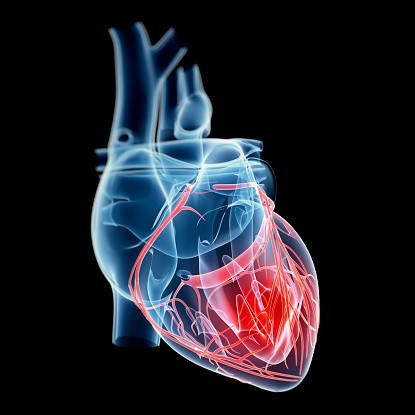Heart disease that struck Carrie Fisher remains women's number one killer
Carrie Fisher died at the age of 60 reportedly after suffering from a heart attack.
Thousands of Star Wars fans around the world are mourning their favourite princess, following the death of actress Carrie Fisher at the age of 60. She had reportedly suffered from a heart attack on a flight from London to Los Angeles last week, although many details regarding her medical condition remain unknown at this stage.
While cardiovascular diseases are more often associated with men, they also represent women's number one killer globally. Women are three times more likely to die of heart disease than breast cancer.
Some risk factors of cardiovascular disease are unique to women, however, and their heart attack symptoms may differ from men's, making diagnosis and treatment in the case of a medical emergency more challenging.
Heart attack, heart disease or sudden cardiac arrest?
Medical terms referring to cardiovascular diseases are often mixed up, even when they refer to different conditions.
Cardiovascular diseases is a general term that refers to all the medical conditions affecting the heart or blood vessels. It is associated with build-up of fatty deposits inside the arteries and an increased risk of blood clots. There are many different types of cardiovascular diseases, the four most common being coronary heart disease, stroke, peripheral arterial disease and aortic disease.
Heart attacks occur as a result of the first one – coronary heart disease.
In this disease, the arteries become narrowed by a gradual build-up of fatty material within their walls and there is a reduced flow of oxygen-rich blood to the heart muscle. This puts an important strain on the heart and can lead to a heart attack, when the supply of blood to the heart is suddenly stopped, usually by a blood clot.

Coronary heart disease can also cause a chest pain known as angina, or heart failure, where the heart is unable to pump blood around the body properly.
In the case of a heart attack, the complications can be severe and life-threatening. An abnormal heartbeat known as arrhythmia is common and can lead to sudden cardiac arrest – the heart starts beating faster then suddenly stops beating.
A heart attack can also cause a cardiogenic shock, where the heart is so severely damaged it cannot supply enough blood to the body, or a heart rupture. If a heart attack is suspected, people should call the emergency services as soon as possible.
No chest pain
So how can women spot the signs of a heart attack? As with men, the most common symptom is some type of pain in the chest. However, this pain may not be as severe as for men, and it may not be the most important symptom that women notice.
Women are more likely than men to have heart attack symptoms that have nothing to do with chest pain, rather experiencing neck, jaw, shoulder, upper back or abdominal discomfort, pain in the arms, nausea, shortness of breath or dizziness.
The challenge is that these symptoms are often subtle and not very specific – they can easily be confused with other conditions. Women tend to downplay them and more often than not end up contacting health professionals after heart damage has already occurred.

When it comes to determining why women develop heart disease, several risk factors are known to matter more than for men. For instance, women with diabetes or who smoke are more at risk of heart disease than men with the same problems.
Poor mental health can also be more problematic – Carrie Fisher herself was known to suffer from bipolar disorder. Women's hearts are affected by stress and depression more than men's. Menopause is a high-risk time for women, since the low levels of oestrogen put them at risk of developing problems in their smaller blood vessels – a condition known as coronary microvascular disease.
To decrease their risk, women can take different initiatives. Lifestyle changes – including adopting a healthy diet, stopping smoking and exercising – have been shown in studies to make a difference.
© Copyright IBTimes 2025. All rights reserved.






















